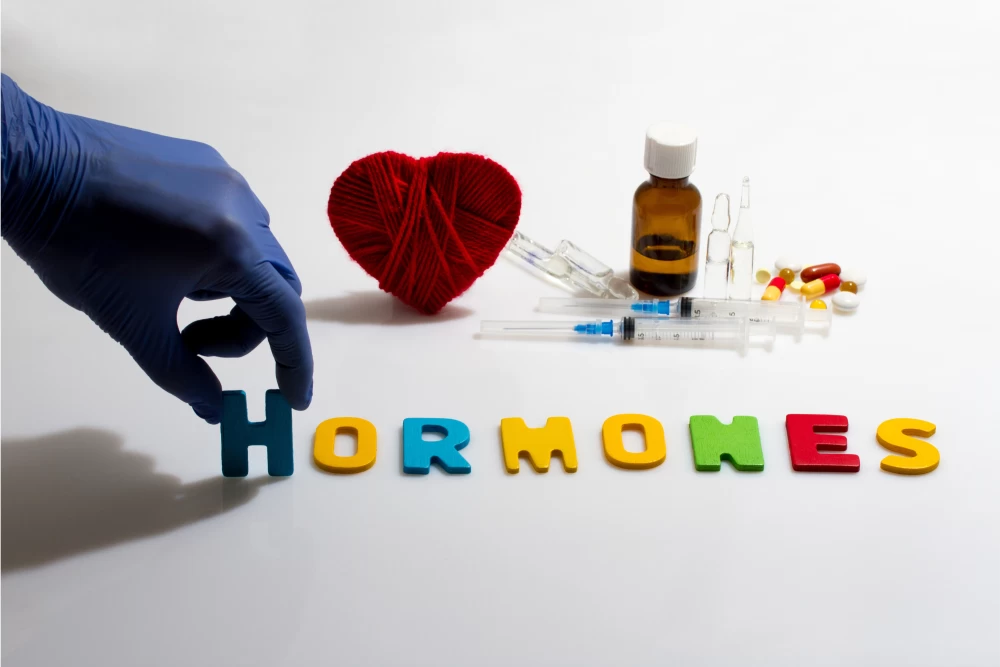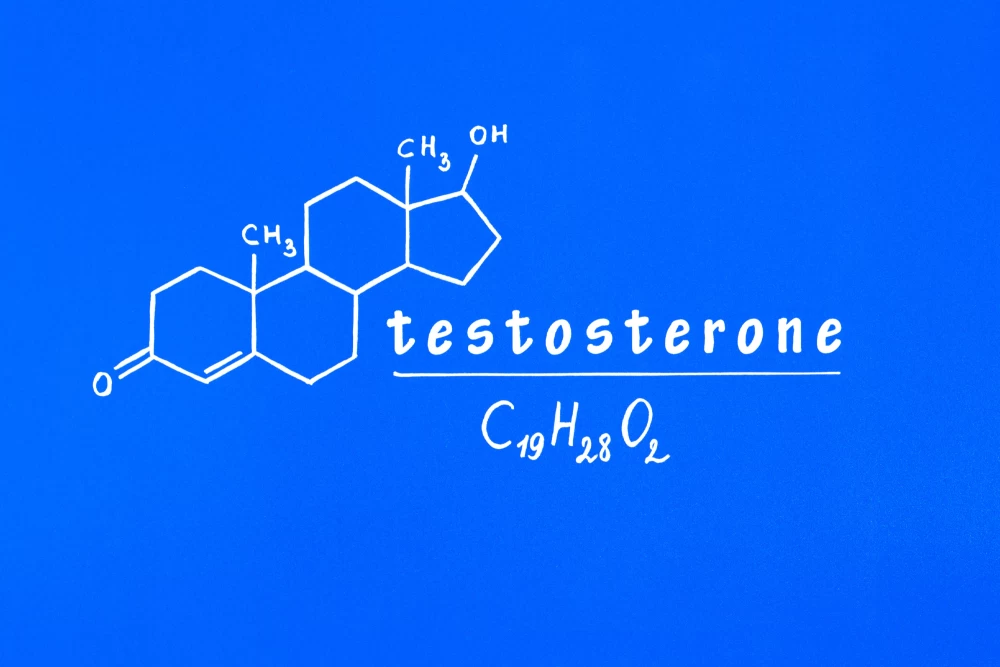
- 25th March 2023
Table of Contents
Fatty Liver Diet
When it comes to managing fatty liver disease, your diet plays an essential role. The focus is on consuming a low-fat and high-fibre diet that can help reduce the amount of fat in the liver. However, what many people don't realize is that certain hormones can impact how your body processes fats and sugars, which can further contribute to fatty liver disease. One hormone in particular that plays a significant role in fat metabolism is insulin. Insulin helps regulate glucose levels in the body and tells cells when to absorb sugar from the bloodstream. When insulin levels are consistently high due to a diet rich in sugary or starchy foods, it can lead to excess fat build-up in the liver. Another hormone involved with fatty liver disease is leptin. Leptin helps regulate appetite and manage energy balance by signaling to the brain when you're full after eating. In some cases of obesity-related fatty liver disease, individuals may become resistant to leptin's signals, leading them to overeat and consume more calories than their bodies need. Overall, understanding how hormones impact your body's ability to process fats and sugars is crucial for developing an effective fatty liver diet plan. By focusing on whole foods like fruits, vegetables, lean proteins, and healthy fats while limiting sugary drinks and processed snacks – you may be able to support healthy hormone levels while reducing inflammation in the liver.
What Hormones are Affected?
Hormones play a critical role in regulating our body's functions, including metabolism, digestion, and energy production. When we consume high-fat diets and develop fatty liver disease, our hormones become imbalanced. Insulin resistance is one of the most common hormonal issues associated with fatty liver disease. As insulin levels increase to compensate for the body's resistance to insulin, it triggers a chain reaction that leads to inflammation and metabolic dysfunction. Another hormone that can be affected by fatty liver disease is leptin. Leptin regulates appetite by signaling the brain when we are full or hungry. However, when fat cells produce too much leptin due to obesity or fatty liver disease, it can result in leptin resistance causing constant feelings of hunger and overeating. Lastly, sex hormones such as testosterone and estrogen can also be impacted by a high-fat diet leading to their imbalance. Testosterone levels decrease while estrogen levels increase due to an enzyme called aromatase present in fat tissue turning testosterone into estrogen leading to reproductive issues like infertility, irregular menstrual cycles or even breast development (gynecomastia) in men with advanced fatty liver disease.
Dietary Changes to Manage Fatty Liver
1. Hormones play a crucial role in the development and management of fatty liver disease. Insulin resistance, a hormonal disorder commonly associated with type 2 diabetes and obesity, has been linked to the accumulation of fat in the liver. To manage fatty liver disease, it is essential to regulate your hormone levels through dietary changes that promote insulin sensitivity.
2. The first step towards managing fatty liver disease through diet is to reduce your intake of processed foods and sugars. Instead, opt for a low-carb, high-fiber diet that includes plenty of whole grains, fruits, vegetables, lean proteins, and healthy fats like avocados and nuts.
3. In addition to making dietary changes that improve insulin sensitivity, it is also important to limit alcohol consumption if you have fatty liver disease. Alcohol can worsen the condition by causing inflammation in the liver and inhibiting its ability to process fat effectively.
4. Other beneficial dietary changes for managing fatty liver disease include increasing your intake of antioxidants like vitamin E and C through foods such as leafy green vegetables and berries; consuming more omega-3 fatty acids found in fish like salmon; reducing your intake of saturated fats found in animal products; and staying hydrated by drinking enough water throughout the day.

Exercise & Lifestyle Habits to Balance Hormones
Exercise and lifestyle habits play a significant role in maintaining hormonal balance. Hormones are essential for regulating various bodily functions, including metabolism, mood, and energy levels. One of the most effective ways to balance hormones is through exercise. Regular exercise helps reduce insulin resistance, lower cortisol levels, and increase endorphins production. Incorporating strength training into your exercise routine is also beneficial for balancing hormones. Strength training helps build lean muscle mass, which boosts metabolism and regulates insulin levels. Additionally, it stimulates the production of growth hormone, which plays a critical role in maintaining hormonal balance. Apart from exercise, adopting healthy lifestyle habits can also help balance hormones naturally. Getting enough sleep is crucial as it allows the body to rest and recharge fully. A lack of sleep increases cortisol levels and disrupts the delicate hormonal balance leading to various health problems like weight gain and diabetes. Eating a balanced diet that includes whole foods like fruits, vegetables, lean proteins while avoiding processed foods high in sugar or unhealthy fats can help maintain healthy hormone levels as well.
Supplements for Supplementing Nutrients
For those battling fatty liver disease, maintaining a healthy diet is key. However, sometimes it can be difficult to consume all the necessary nutrients through food alone. That’s where supplements come in. One popular supplement for those with fatty liver disease is milk thistle. Milk thistle contains silymarin, which has been shown to have antioxidant and anti-inflammatory properties that may help protect liver cells from damage. Another important nutrient for those with fatty liver disease is vitamin E. This powerful antioxidant helps reduce inflammation in the liver and can improve overall liver function. Vitamin E can be found in foods such as nuts and seeds, but taking a supplement may be necessary to ensure proper levels are reached. Additionally, omega-3 fatty acids have been shown to have positive effects on reducing inflammation in the body and improving liver function. Fish oil supplements are a common way to increase omega-3 intake, but plant-based sources such as flaxseed oil or chia seeds can also provide these essential fatty acids. As always, it’s important to consult with a healthcare professional before adding any new supplements to your diet regimen.
Monitoring Progress & Staying Motivated
When it comes to achieving any health goal, monitoring progress is key in staying motivated. This is especially true for individuals looking to address fatty liver disease through diet and lifestyle changes. Regular check-ins with a healthcare provider or nutritionist can provide valuable insight into whether your efforts are paying off and help you stay on track. Additionally, keeping a food diary or using a tracking app can help you visually see your progress and areas for improvement. Staying motivated during the process of changing one's diet and lifestyle can be challenging, but there are several strategies that may help. Setting realistic goals and celebrating small wins along the way can provide a sense of accomplishment and motivation to keep going. Finding an accountability partner or joining a support group can also provide encouragement and guidance throughout the process. Lastly, focusing on the positive benefits of making these changes, such as improved energy levels or better overall health, can serve as strong motivators to stick with it even when it gets tough.
Conclusion: Balanced Hormone Levels & Healthier Liver
In conclusion, maintaining balanced hormone levels is essential for a healthy liver. Hormone imbalances can lead to the development of fatty liver disease and other liver-related health issues. By making lifestyle changes such as regular exercise and a healthy diet, individuals can improve their hormone balance and reduce the risk of developing liver problems. One way to maintain hormonal balance is by consuming foods that support the liver's natural detoxification process. These include cruciferous vegetables like broccoli, cauliflower, and Brussels sprouts, which contain compounds that help break down excess hormones in the body. Additionally, incorporating antioxidant-rich foods like berries and leafy greens can help neutralize harmful toxins that may otherwise damage the liver. Overall, taking steps to promote balanced hormone levels through diet and lifestyle choices not only benefits overall health but also supports optimal liver function. By prioritizing these areas of wellness in daily life, individuals can reduce their risk of developing serious health conditions related to poor hormonal balance or fatty liver disease.














